Matt and I had a date at the Oregon Historical Society to see Racing to Change: Oregon’s Civil Rights Years.
It was a good exhibit. Both of us were left with the depressing feeling that not much has changed since the 1960s and 1970s.
An example: This is from the October 1966 Black Panther Party Platform and Program. The Black Panthers were talking about police brutality 52 years ago. How much has changed on that front?
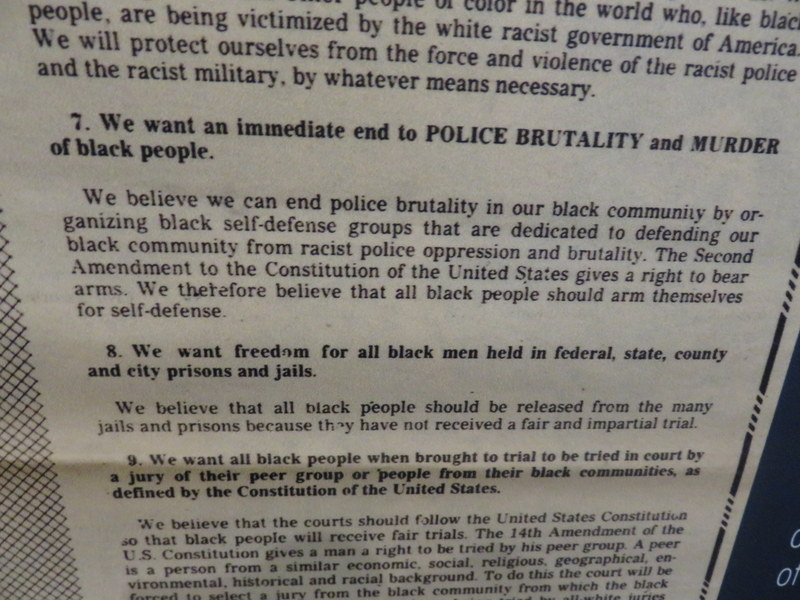
Here’s a picture of houses and businesses in the thriving Black community in the Vancouver/Williams area. The 188 shaded houses and several businesses were claimed through eminent domain and torn down for the expansion of Legacy Emmanuel Hospital, an expansion that never came. The Oregonian featured one woman’s story on July 6, 2017. “City policy cost 98-year-old black woman her home. Here’s why she won’t get it back.”
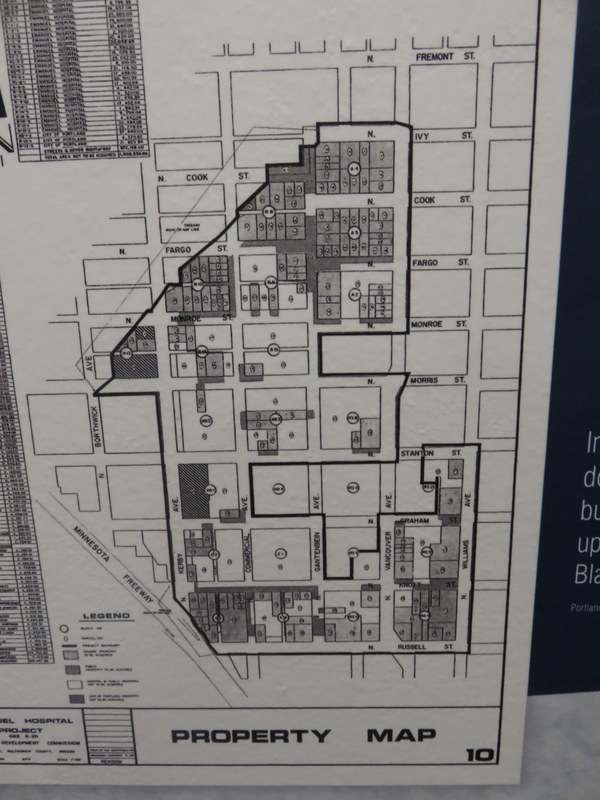
We learned about the tense relationship between police and the black community including police officers taking part in racist harassment, being fired and the police taking part in a “Cops Have Rights Too” rally. The officers were reinstated. 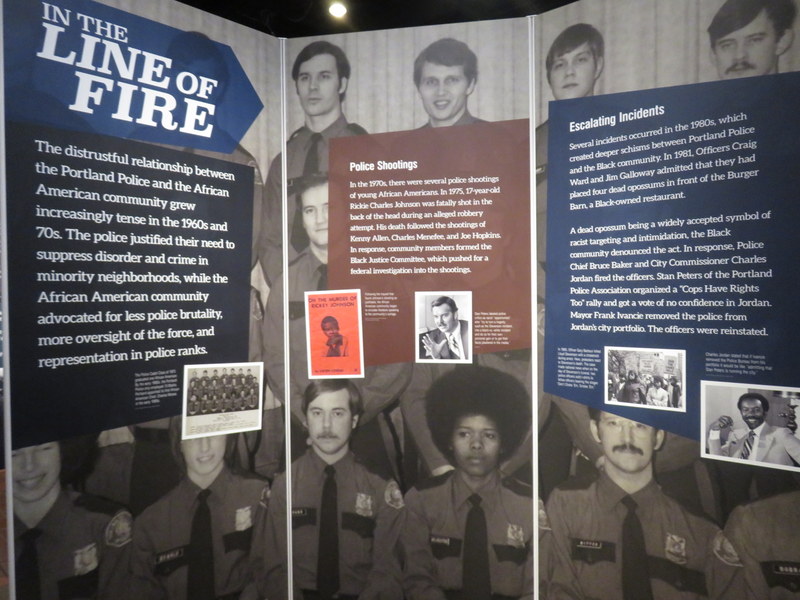
An observation by Avel Gordly
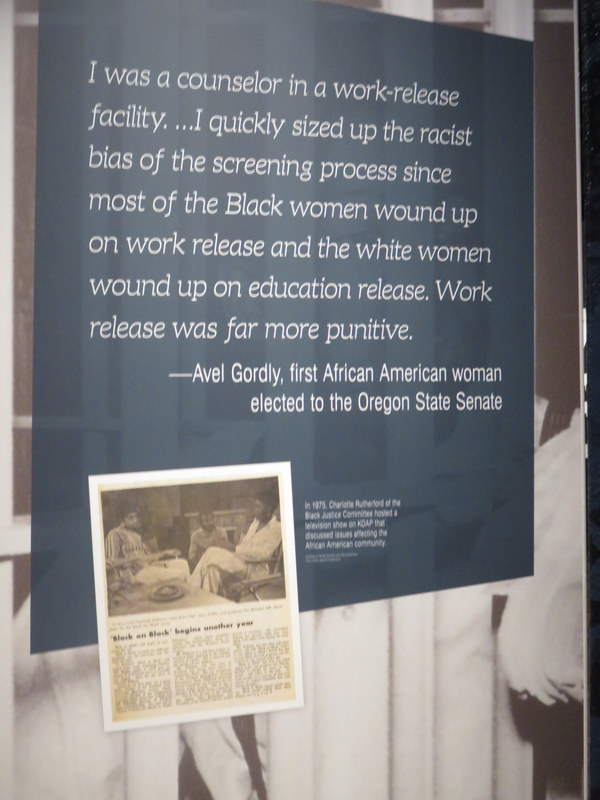
Instructions for what to do when stopped by the police which are still the same instructions given today. Point #12 was interesting advice about how to sit in the police car more comfortably.

Also this great letter from the chairperson of the Black Justice Committee, who opens with an apology and acknowledgment that putting together the monthly mailing is “a big drag.” This made me laugh.

The exhibit ends with ways to work for change.
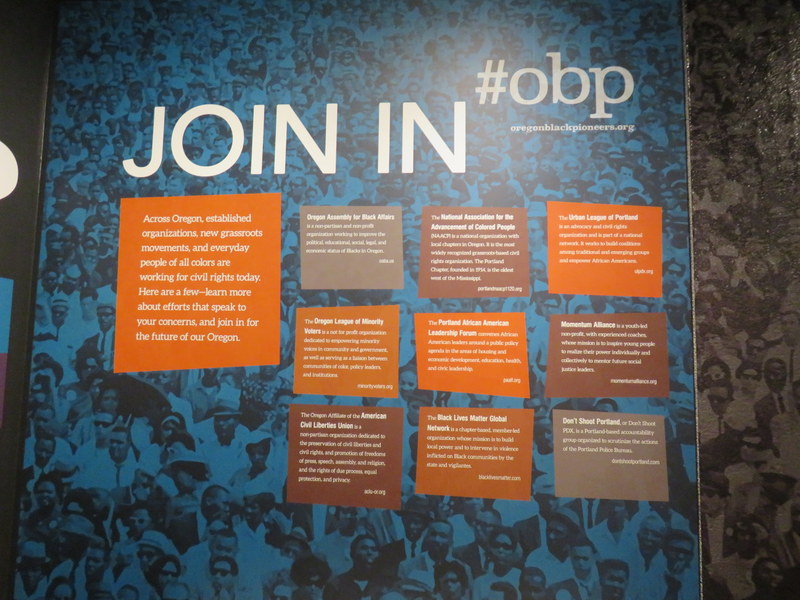
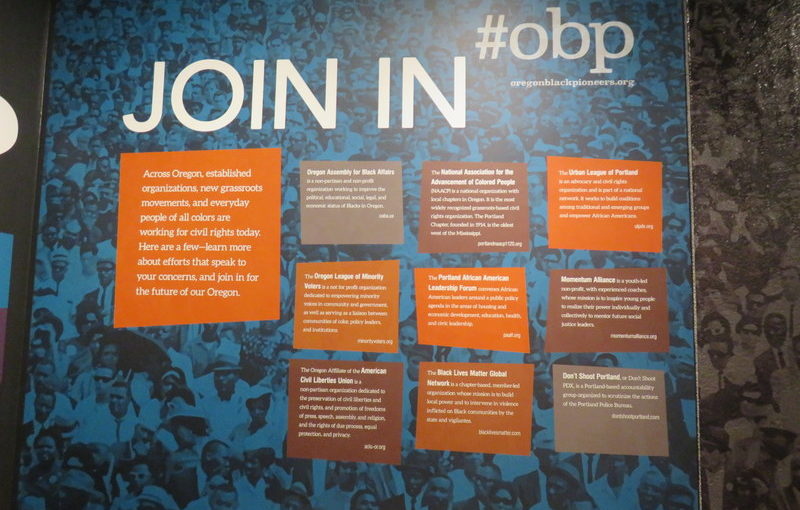
Now having gone to the Civil Rights Museum in Winnipeg, I have a closer experience with this process. It was, as you say, rather difficult to realize that, while we have made strides, we are no where close to where we need to be in all people having real civil rights equally possessed. I found myself thinking: but Canada does things better, right? (Yes and no). I feel the same about PDX being a liberal/progressive bastion, but systemic racism and bias is not generally overcome by white liberalism, we just like to think that it does.
Indeed. And a lot of the problem here (aside from terribly racist past in our state) is that Oregon is still such a very white state. Many white people can go through a lot of their life thinking about race and racism in the abstract or not at all, due to the fairly small minority populations.